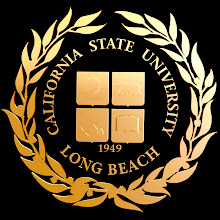Having just completed a two-year project with funding from the U.S. Department of Agriculture (USDA), the National Council of La Raza (NCLR)/Cal State Long Beach (CSULB) Center for Latino Community Health, Evaluation and Leadership Training has received another two-year grant from the USDA.
The new USDA grant, worth $296,000, will fund a two-year project to develop a permanent Cal State Long Beach course called “Latino Nutrition and Chronic Disease Prevention.” In addition to course development, the project will include the training of faculty and lecturers who will implement the course as well as the opportunity for them to learn techniques to provide Latino students with culturally-relevant advisement that incorporates the socioeconomic and institutional issues many Latino students face.
“With the first two-year grant, we were able to establish the Student Community Health Educator experience on campus in collaboration with Long Beach Department of Health and Human Services’ WIC Program. Our students learned to integrate their cultural and linguistic abilities with community based participatory research techniques to better understand and serve the needs of Latina mothers and their families.” said Britt Rios-Ellis, director of the NCLR/CSULB Latino Center and director of the project. “With this second USDA grant, we will take what we’ve learned from the first project and weave it into the institutional and curricular fabric of CSULB.”
In 2007, the NCLR/CSULB center received a $295,000 grant for a project called “Comienzo Sano: Familia Saludable” (“Healthy Start: Health Family”), a two-year program aimed at facilitating the empowerment of the Long Beach Latino community to increase breast feeding and age-appropriate nutrition to reduce the risk of overweight and obesity in Latino communities. The program recruited 12 first generation-educated Latino students in nutrition and health science at CSULB who were both bilingual and bicultural and trained them to engage in training and outreach.
“Through the first project, nutrition and health science students have learned to apply their academic knowledge to the needs of the local Latino community in Long Beach, gaining respect for their education and increasing their belief that they can make a difference,” noted Gail Frank, CSULB professor of nutrition and co-director of both projects. “They will take this knowledge with them into their professional careers and future volunteer service in any U.S. state or community.
“By creating a permanent course in Latino nutrition, we will be preparing health and human service professionals to meet the needs of the growing Latino population,” Frank added.
Like the 2007 “Comienzo Sano” project, the course-development project will continue to provide experiential learning internship opportunities for undergraduate and graduate students, who will receive training in various research methods, receive financial assistance and be given opportunities to attend local and national conferences. Students also will be trained to provide nutrition and health education within the local Latino community.
The NCLR/CSULB Center for Latino Community Health, Evaluation and Leadership Training promotes and advocates for the health and well-being of diverse Latino/Hispanic communities, striving to eliminate disparities in access to and quality of care and health outcomes and to improve the cultural relevance of health information.
The center is a partnership between the National Council of La Raza and CSULB. NCLR, the largest civil rights advocacy organization for Latinos in the nation, also addresses human rights by providing direct services to Latinos --through the center and other affiliates. The center also embodies the CSULB mission of training our nation’s leaders by offering experiential learning opportunities for Hispanic and the diverse population of CSULB students pursuing their degrees and incorporating community needs into their programmatic and research activities.
For more information about the project, contact Melawhy Garcia, project coordinator, at the NCLR/CSULB Center at 562/985-5242.
-- Rick Gloady
Subscribe to:
Post Comments (Atom)




No comments:
Post a Comment